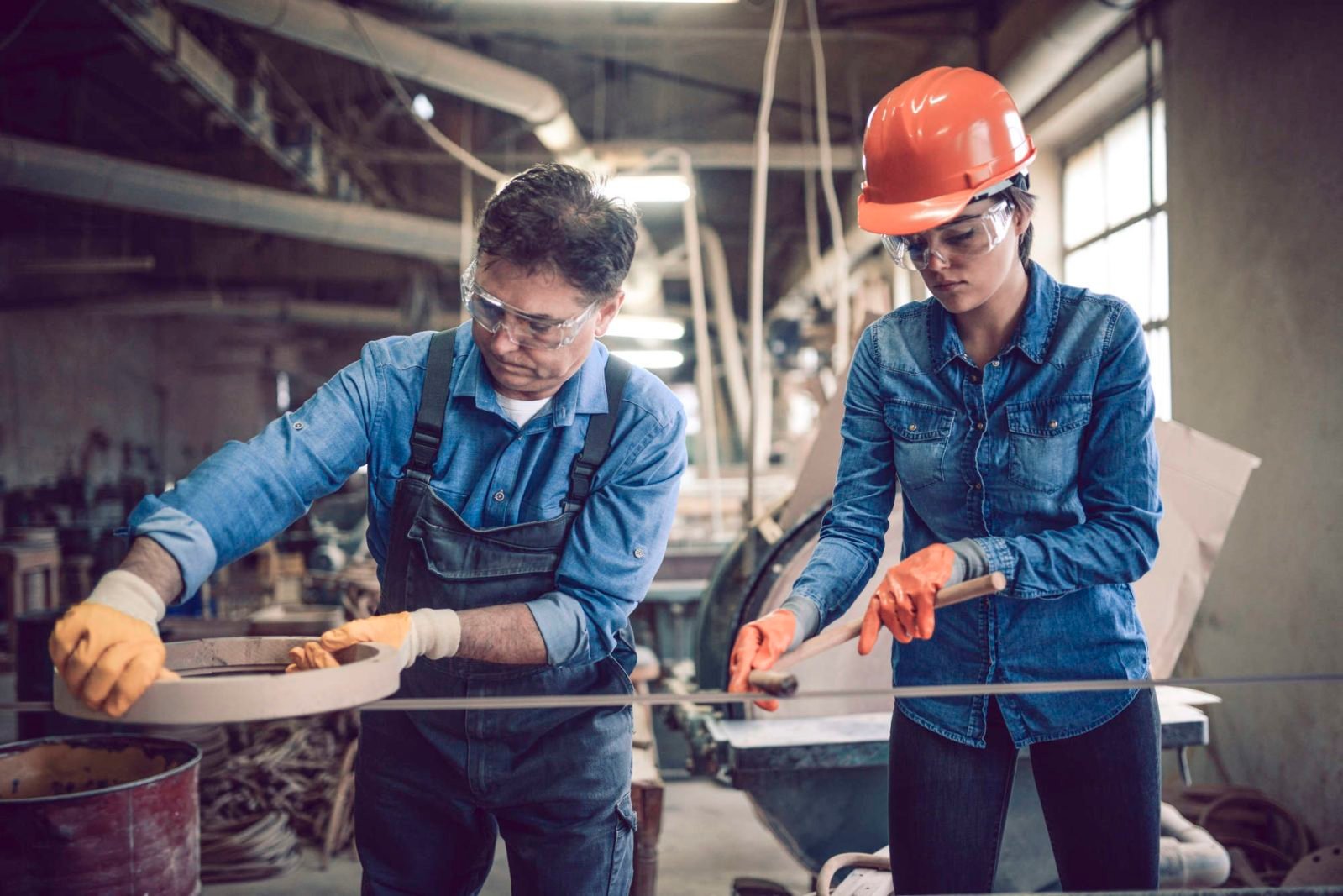Building Community and Culture in the Workplace
In the modern work environment, fostering a strong sense of community and culture is not merely a strategic advantage; it’s essential for organizational success. The way a company shapes its culture and builds community impacts productivity, employee satisfaction, and retention.
Strategies for Cultivating a Positive Workplace Culture in The Skilled Trades
1. Intentional Culture Creation
Creating a positive workplace culture requires intentionality and consistency. For manufacturing and skilled trade jobs, it starts with clearly defining the company’s core values and ensuring they are reflected in every aspect of the organization, from leadership practices to daily interactions on the shop floor. Leaders play a crucial role in modeling desired behaviors and setting the tone for the organizational culture.
2. Encouraging Open Communication
Open communication is vital for building a strong sense of community. Encouraging transparent dialogue helps employees feel heard and valued. Implementing regular feedback mechanisms, such as surveys and team meetings, allows employees in manufacturing and skilled trades to voice their opinions and contribute to continuous improvement.
3. Promoting Inclusivity and Diversity
An inclusive culture that embraces diversity contributes to a richer workplace environment. Research shows that diverse teams in skilled trades and manufacturing are more innovative and better at problem-solving. Companies should actively work to create a welcoming environment for employees from various backgrounds, men and women to ensure that diversity is reflected in all levels of the organization.
4. Fostering Employee Engagement
Engaged employees are more productive and less likely to leave. Strategies for enhancing engagement in manufacturing and skilled trades include recognizing and rewarding achievements, providing opportunities for professional development, and ensuring employees understand how their work contributes to the organization’s goals.
5. Building Strong Team Connections
Team-building activities and social events can strengthen relationships and foster a sense of belonging. Regular team meetings, collaborative projects, and social gatherings help employees build connections and work more effectively together in manufacturing settings.
A positive workplace culture significantly influences employee retention. Employees who feel connected to their company’s culture and community are more likely to remain with the organization. According to Gallup’s State of the American Workplace report, employees who feel engaged and valued are 59% less likely to look for a new job. This is particularly pertinent in skilled trade jobs, where retention of experienced workers is crucial.
Companies with strong cultures also benefit from reduced turnover costs, as they can attract and retain top talent more effectively. High retention rates contribute to overall organizational stability and continuity, allowing companies to build on their accumulated knowledge and experience in the manufacturing and skilled trades sectors.
Conclusion
Creating a thriving workplace culture and community is a strategic imperative that drives productivity, engagement, and retention. By understanding the theoretical foundations and implementing practical strategies tailored to manufacturing and skilled trades, organizations can build a positive environment that enhances employee satisfaction and organizational success.
Investing in culture and community is not just about making the workplace enjoyable; it’s about laying the foundation for long-term business success. As companies navigate the complexities of the modern work environment, prioritizing culture and community will be key to achieving sustainable growth and excellence in skilled trade jobs and manufacturing.
